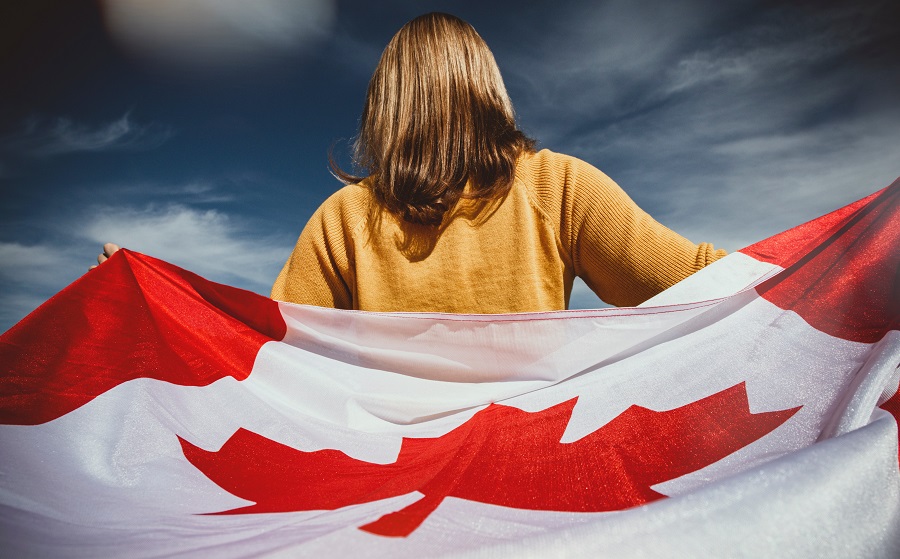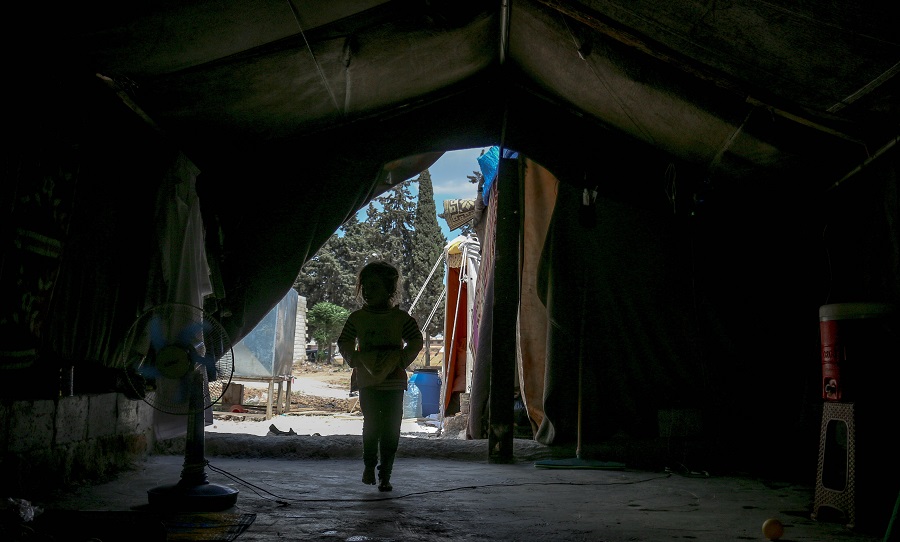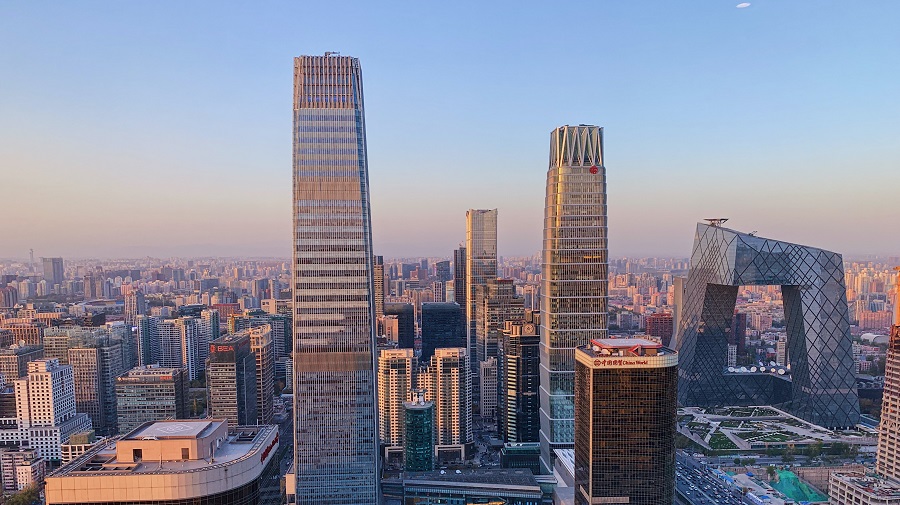New Web Campaign Celebrates Migrants and Their Stories
'It Takes a Community' Hopes to Change "Inaccurate and Harmful Narratives" About Migrants
A new web campaign hopes to celebrate Canadian communities and the immigrants and refugees that contribute to them.
The campaign, titled 'It Takes a Community,' was initiated by the Global Forum on Migration and Development, and has gained the support of the Government of Canada among other chair holders.
It Takes a Community was launched on Mar. 29 with a website featuring videos, infographics, and a list of ways to participate. Specifically, those interested can join in three ways: they can 'pledge' their support, make social media posts with the hashtag '#ItTakesACommunity,' or become a campaign leader. As a campaign leader, participants can download a digital toolkit with resources to bring the campaign to their own community.
The campaign's ultimate goal is to share stories of immigrants and communities that have received their help. Currently, the site houses 12 short videos telling these stories.
"Throughout history, migration has helped us to foster new connections, exchange innovative ideas, and enrich each other’s lives," the website says.
The website explains that the COVID-19 pandemic has pushed "inaccurate and harmful narratives" about immigrants and refugees into the media.
"Now more than ever, it is important for us to come together to ensure that everyone receives the support and protection they need for communities to build back better from COVID-19," the site says.
In a press release, Marco Mendicino, Minister of Immigration, Refugees and Citizenship Canada (IRCC) explained the campaign's importance.
“By sharing [immigrants and refugees'] stories and speaking up about how our countries, cities and organizations are stronger when we come together, we can all play a role in this campaign to push back against discrimination and create more welcoming and inclusive communities for all," he said.
Sophie van Haasen, Coordinator of the GFMD Mayors Mechanism, added that the current landscape provides a necessary reminder for strong community ties:
“COVID-19 has reminded us how important it is that all of us play a role in making our communities resilient, regardless of where we come from," she said. "'It Takes a Community' brings local stories to the global stage to inspire and ensure everyone in our society thrives."
It Takes a Community will continue to collect stories for one year.
Law Refusing Entry To Immigrants With Health Conditions To Be Scrapped By Canadian Government
A Proposal Rules That The Existing Law Is "Not Aligned With Canadian Values"
Prospective immigrants with certain health conditions often have trouble being accepted into Canada – but an amendment to a federal law could change that.
Until now, the 'medical inadmissibility rule' has prevented many with disabilities and illness from obtaining permanent residency in Canada. The rule claims that these conditions “might reasonably be expected to cause excessive demand” on the Canadian health care system or its individual services.
READ MORE: Ottawa Caregiver’s Dream of Permanent Residence At Risk Due to Medical Condition
The Department of Citizenship and Immigration published a proposal in the Canadian Gazette, calling for an amendment to the rule. They criticize the existing rule, saying it "does not strike an appropriate balance between protecting health services and promoting inclusion."
It adds that “the policy treats these costs as a burden to society, rather than as investments that enable participation, inclusion, and positive contributions.”
This proposal follows a 2017 study, in which the parliamentary immigration committee examined the claims surrounding the medical inadmissibility rule. They concluded that the rule should be repealed as it does not align with Canadian values, like inclusion.
In 2018, the government responded to the study by making changes to the policy. As a result of these changes, 62 applicants and their family members with certain health conditions were admitted to Canada – under the previous law, they wouldn't have been admitted.
Alongside the upcoming policy changes, the government has proposed to redefine the terms 'health services' and 'social services' in reference to the policy.
Canadians have until April 26, 2021 to contact Immigration, Refugees and Citizenship Canada to comment on the proposal. Following that, it will be finalized.
Canada Allows Yazidi Refugee Families to Sponsor Family in Refugee Camps
IRCC Widens Refugee Sponsorship Criteria and Extends Deadlines
Immigration Minister Marco Mendicino has approved a new policy that enables Yazidi refugee families residing in Canada to sponsor their extended family members living in Syrian refugee camps.
The new policy implemented this week extends the time frame for refugee sponsorship and broadens the eligibility criteria.
"By changing the policy to be more inclusive of extended family members, we are showing compassion," Mendicino said in a recent interview with CBC News.
Mendicino added that this policy change not only demonstrates Canada's commitment to maintaining a strong, robust refugee system, but also shows the country's dedication to upholding human rights.
Canada's original Syrian refugee program aimed to resettle Yazidi women and girls and their spouses who had been directly affected by ISIS. Unfortunately, many refugees have been forced to come to Canada alone without many of their family members.
Refugees were, however, able to reunite with extended family members through the private sponsorship of refugees (PSR) program. Spouses, common-law partners and dependent children were also able to come to Canada within 1 year after their family members had settled in Canada.
Unfortunately, certain ISIS survivors that have resettled in Canada are unable to bring families living in Iraq to Canada, as they do not meet the eligibility requirements.
Under the new policy, however, family members that fall under this category will be eligible to become government-assisted refugees or privately sponsored refugees.
This new policy comes only a few months after several Yazidis and community groups wrote to Mendicino asking for the government to expedite sponsorship applications and offer humanitarian aid for those residing in Syrian refugee camps. According to CBC, they never received a direct response from the immigration minister, but are pleased to hear that more family members will now be eligible for sponsorship.
As of January 2021, Canada has welcomed 1,356 government-assisted refugees and 94 privately sponsored survivors, all of which are Yazidi women and girls. The resettlement program received $21.7 million in government funding to cover income support, the Interim Federal Health Program, and others supports, such as language training.
Even still, CBC reported that there is an estimated 360,000 Yazidis living in refugee camps.
Canadian MP Calls For Action To Support Immigrants In Limbo
"No Justification" For Making Immigrants Wait, Says Bloc MP
A Canadian Member of Parliament wrote that there is "no justification" for a technicality stopping legally-accepted immigrants from entering Canada.
Specifically, Canada is denying entry to immigrants whose applications for permanent residence in Canada have been accepted. Thousands of immigrants have faced this issue because of temporary travel restrictions put in place when the COVID-19 pandemic began.
Christine Normandin, who represents the Saint-Jean electoral district as MP from the Bloc Québécois party, wrote a letter calling for the federal government to take action.
In the letter, addressed to Immigration Minister Marco Mendocino, Normandin wrote that "there does not appear to be a health justification" for the decision, and that "[the] situation sends the wrong message to immigrants."
These immigrants have already received their Confirmation of Permanent Residence (COPR). This means that they have completed the permanent residence process, which includes passing medical exams, federal security checks, and safety checks.
Normally, a COPR would allow immigrants to enter Canada. Those who received their COPR after March 18, 2020, cannot enter, however, due to travel restrictions put in place following the start of the COVID-19 pandemic. Many of them are therefore stuck in the country they would otherwise have been able to leave.
In the letter, Normandin writes:
“Many fear the expiration of their COPRs and the need to start the process all over again, with the costs of medical examinations and criminal background checks that this entails, which can be costly, especially for a family.”
When the pandemic began, Canada initially closed its borders with intentions to reopen them on June 30, 2020. This date has been indefinitely extended, and there has been no clear statement pointing to when immigrants with COPRs will be let in.
Normandin wrote that the decision not to let these immigrants enter Canada will create long-term problems for the immigration system and for the officers themselves.
“Unless the restrictions for COPR holders begin to be lifted soon, we understand that with the existing admission thresholds, it will be difficult to make up for the lost time when the borders finally open, resulting in delays in the admission of files that are still pending,” she wrote. “We are also concerned that this will place an additional burden on immigration officers if, while waiting for the restrictions to be lifted, applicants are required to undergo repeat medical examinations and criminal background checks, which officers will then have to reassess.”
MPs Criticize Federal Government for Outsourcing Visa Processing to Beijing
Contract With Company Owned by Beijing Police Has Created Privacy & Espionage Concerns
The Federal government is facing scrutiny from Members of Parliament over a contract it has with a Beijing police-owned company that processes Canadian visa applications.
The contract is with Beijing Shuangxiong Foreign Service Company, which has been carrying out visa processing services for the Canadian government since 2008. The Beijing Municipal Public Security Bureau runs this company.
Despite being active for 13 years, Conservative MP Jasraj Singh Hallan recently brought up the partnership during the House of Commons immigration committee.. Hallan asked Immigration Minister Marco Mendicino if the government was considering the potential risk of espionage due to insufficient screening of staff in China.
NDP immigration critic Jenny Kwan also criticized the contract, stating:
“The truth is the entire structure stinks and this is a huge conflict of interest for the safety of applicants.”
In response to the criticism, Mendicino has said that he is confident that there are no privacy issues to be concerned about, and that Beijing Shuangxiong Foreign Service Company is adequately protecting the personal information of those who apply for a Canadian visa.
Mendicino added that the federal government is closely monitoring Shuangxiong Foreign Service Company and conducting regular audits and security screenings of all employees who work there.
“We are eyes wide open on this issue and we will continue to manage these risks going forward,” he said.
During the same committee meeting, Mendicino was also asked about the increasingly tense situation in Hong Kong and whether Canada would take steps to ensure residents could leave Hong Kong and come to Canada in light of “draconian” Chinese security laws and anticipated changes to the electoral system that would restrict Hong Kong's independence.
Mendicino responded, saying that the federal government is actively working with allies to monitor the situation in Hong Kong.
“At this difficult moment, Canada stands shoulder to shoulder with the people of Hong Kong and shares the grave concerns of the international community.”
Mendicino added that nobody arrested in relation to protests in Hong Kong would be banned from coming to Canada.
“No Hong Kongers will be prevented from coming to Canada or claiming asylum, because they have participated in peaceful protests," he said.





